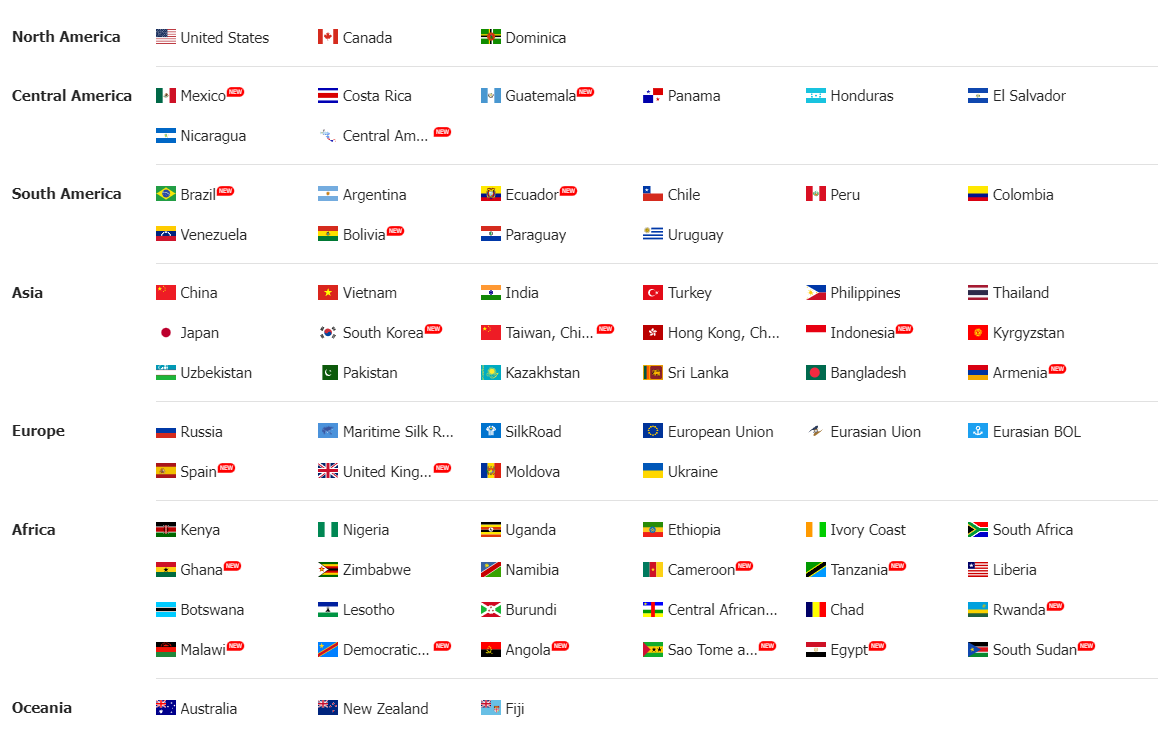 Trade Data
Trade Data
 24-06-2024
24-06-2024
Accessing global trade data is essential for businesses looking to expand their reach and identify potential importers. One effective way to pinpoint importers is by using the Harmonized System (HS) code, which classifies products in international trade. Here’s a guide on how to utilize HS codes to find importers and enhance your global trade strategy.
1.What is an HS Code?
The Harmonized System (HS) code is an internationally standardized system of names and numbers used to classify traded products. Developed by the World Customs Organization (WCO), HS codes ensure that goods are uniformly categorized across different countries, facilitating smoother international trade operations.
2.Why Use HS Codes to Find Importers?
Using HS codes to find importers offers several advantages:
Precision: HS codes provide a detailed and specific classification of products, allowing you to accurately identify potential importers for the exact products you offer.
Global Standardization: Since HS codes are universally recognized, they enable you to search for importers across various countries without worrying about different product classification systems.
Efficiency: HS codes streamline the search process, saving time and resources by narrowing down the list of potential importers to those relevant to your product category.
3.Steps to Find Importers by HS Code
Identify the Correct HS Code for Your Product:
Begin by determining the precise HS code for your product. You can find HS codes through official customs websites, trade organizations, or industry-specific resources. Ensure you have the correct and most specific HS code to get the best results.
Access Global Trade Databases:
Utilize global trade databases and platforms that provide detailed import and export data. Some popular platforms include:
UN Comtrade: Offers comprehensive international trade data, allowing you to search by HS code and country.
Trade Map by ITC: Provides trade statistics and company data, helping you identify importers and exporters by HS code.
Panjiva: A commercial platform offering detailed import and export data, including company profiles and shipment details.
Filter Search Results:
Use the HS code to filter search results within these databases. Look for importers who have a consistent history of importing products under the specified HS code. This ensures you target companies already interested in your product category.
Analyze Import Data:
Examine the import data to identify key importers, import volumes, and trends. Pay attention to the frequency and quantity of imports, as well as the countries these importers are based in. This analysis can help you prioritize your outreach efforts.
Verify Importers:
Before making contact, verify the legitimacy and credibility of potential importers. Cross-reference their information with other sources, such as business directories, company websites, and industry reports.
Initiate Contact:
Once you have a list of verified importers, reach out to them with a well-crafted introduction. Highlight your product’s unique selling points and provide relevant information to pique their interest.
4.Benefits of Using Trade Data for Business Expansion
Leveraging trade data to find importers by HS code offers numerous benefits for business expansion:
Market Insights: Gain valuable insights into market demand and trends, helping you tailor your offerings to meet the needs of potential importers.
Competitive Advantage: Access to detailed trade data provides a competitive edge, enabling you to identify and capitalize on new market opportunities before your competitors.
Strategic Planning: Informed by trade data, you can develop more effective market entry and expansion strategies, enhancing your chances of success in international markets.
Conclusion
Finding importers by HS code is a powerful strategy for businesses looking to expand their global footprint. By utilizing global trade data platforms and following a systematic approach, you can identify and connect with potential importers who are most likely to be interested in your products. This method not only saves time and resources but also increases the likelihood of successful international trade relationships.
Tendata iTrader compiles trade data from 218 countries and provides detailed information on over 130 million import-export enterprises worldwide.
With a daily influx of 10 billion trade records, Tendata efficiently delivers contact details for over 700 million top-level executives and decision-makers in the import-export industry through advanced filtering. This includes email addresses, phone numbers, social media profiles, and more. Additionally, we offer synchronized company profiles, product images, and website links, along with 19 types of visual reports. These tools assist foreign trade enterprises in precise market positioning and thorough market analysis, enabling you to quickly find the exact buyers and suppliers you need.
(>> Visit the Official Shanghai Tendata Website for More Details <<)

Category
Leave Message for Demo Request or Questions


 T-info
T-info T-discovery
T-discovery

 My
Tendata
My
Tendata Market Analysis
Market Analysis Customer
Development
Customer
Development Competitor
Monitoring
Competitor
Monitoring Customer Relationship
Customer Relationship





































































































































